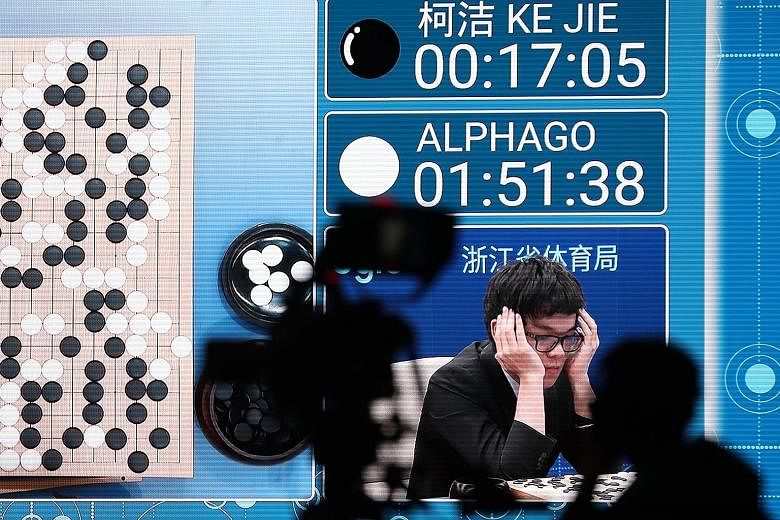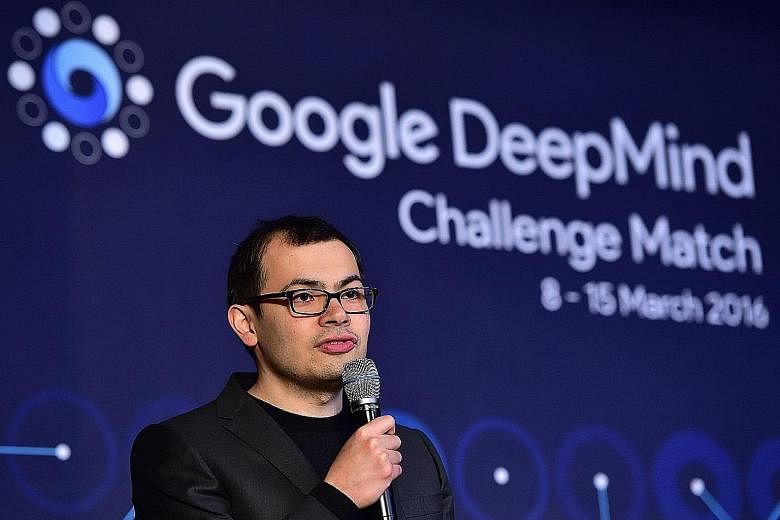LONDON • DeepMind, the London-based artificial intelligence company owned by Alphabet Inc, is planning to let its software learn how to fold proteins, an important problem for drug discovery.
The company is best known for its AlphaGo software that beat the world's top human players at the ancient strategy game of Go.
But now it has created software based on a different design, called AlphaGo Zero, which can beat all previous versions of AlphaGo.
Unlike earlier versions, AlphaGo Zero learnt completely from scratch, with no knowledge of how humans play the game, said DeepMind chief executive Demis Hassabis, ahead of the publication of the new research in the scientific journal Nature on Wednesday.
DeepMind's latest project shows how its studies could be of increasing practical importance to its parent company.
Last year, Alphabet put a DeepMind AI system in control of parts of its data centres to reduce power consumption by manipulating computer servers and related equipment like cooling systems.
Furthermore, AlphaGo Zero used one-twelfth of the computing power of the version that beat 18-time world champion Go player Lee Sedol last year.
It ran on just four Tensor Processing Units, chipsets optimised for machine-learning that Google has created for its data centres, compared with 48 on the previous version of AlphaGo.
Mr Hassabis said the company is now planning to apply an algorithm based on AlphaGo Zero to other domains with real-world applications, starting with protein folding.
To build drugs against various viruses, researchers need to know how proteins fold.
Alphabet has become increasingly interested in the healthcare sector.
In July, Verily, the life sciences arm of Alphabet, and Swiss pharmaceutical giant Novartis invested in a US$300 million (S$407 million) fund started by European venture capital firm Medicxi to hunt for promising opportunities in the industry.
Verily also unveiled a venture last year with French pharmaceutical firm Sanofi to tackle diabetes by combining devices and medicine, and it has also formed a venture with Britain's GlaxoSmithKline to explore the use of electrical signals to treat diseases.
While supercomputers have been previously applied to protein folding, the results have not been spectacular.
Dr David Silver, the principal researcher on DeepMind's Go project, said AlphaGo Zero belied conventional wisdom that leaps forward in AI have mostly come from bigger and better data sets and more powerful computers.
"It is the novel algorithms that really matter," he said.
"It is actually the algorithmic advances that lead to more progress than either compute power or data."
AlphaGo Zero, starting from no knowledge except the rules of Go and no input other than the black and white stones on the Go board, begins with random moves.
After 36 hours, it outperformed the version of AlphaGo that defeated Mr Sedol.
After 72 hours, it could beat that system 100 games to 0.
After 40 days and 29 million games, the system was capable of beating DeepMind's AlphaGo Master, which had defeated the world's top-ranked player Ke Jie, by 89 games to 11.
WASHINGTON POST


